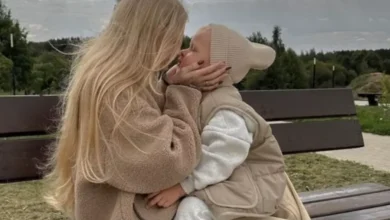Deprivation of Ukrainian children of identity and militarization: Olena Kondratyuk calls on the OSCE for a clear response to the actions of the Russian Federation

One of the most acute humanitarian problems caused by Russia’s war against Ukraine is the massive violation of children’s rights. It is not only a threat to life or physical safety, but a purposeful policy of the Russian Federation aimed at destroying the Ukrainian identity of children who ended up in the temporarily occupied territories or were forcibly deported to the Russian Federation. This issue has become the subject of repeated statements by the Ukrainian authorities, international organizations, human rights defenders and journalists. During the meeting with the OSCE High Commissioner for National Minorities, Christoph Kamp, the Vice Speaker of the Verkhovna Rada Olena Kondratiuk directly called for an international reaction to these actions of the Russian Federation.
Children are the most defenseless category of victims, they find themselves not only in conditions of physical violence and separation from their families, but also under the threat of total rewriting of their nationality, names, language, and cultural context. We are talking about practices that at the international level are qualified not only as crimes against humanity, but as signs of genocide – the deliberate destruction of a national group by breaking the identity of its youngest members.
During a meeting with the OSCE High Commissioner for National Minorities, Christoph Kamp, Verkhovna Rada Vice-Speaker Olena Kondratiuk urged to the international reaction to these actions of the Russian Federation. She emphasized the need for special attention, public condemnation and a clear response from the OSCE to another Russian missile attack on Kryvyi Rih, the growth of terror against the civilian population, the forcible deprivation of Ukrainian children of their own identity, as well as large-scale and systematic violations of human rights on temporarily occupied territories of Ukraine, in particular in Crimea.
According to her, attention to the topic of changing the identity of Ukrainian children, their mass militarization, as well as forced adoption and abduction should be one of the priorities for the OSCE.
“This is extremely important in the context of future peace negotiations, the premise of which should be the release of all political prisoners, the return of prisoners and children.
The Verkhovna Rada is doing everything possible for this at the legislative level. In particular, the Law “On National Minorities (Communities)” and corresponding amendments to the Law “On Education” were adopted. These efforts were highly appreciated by the European Commission and became the basis for the start of negotiations on Ukraine’s accession to the EU.”Kondratiuk stressed.
She also emphasized that a just peace is impossible without bringing to justice all those involved in war crimes, genocide and systematic violation of human rights. In this context, the problem of children is not a minor humanitarian issue, but one of the key markers of Russian aggression.
According to official Ukrainian data, there are about 1.6 million Ukrainian children in the temporarily occupied territories. These children not only live in conditions of informational and physical isolation, but are constantly exposed to the policy of forced “Russification”: the Ukrainian language, literature, and history are removed from schools, Russian military symbols are introduced, and Russian soldiers are glorified. Many children attend so-called military-patriotic camps or participate in activities that prepare them for service in the army of the occupying country.
Kondratyuk separately stated:
“Kidnapping and forced adoption of children, their mass militarization and preparation for war against their native country, deprivation of Ukrainian identity, complete disregard for linguistic, educational and cultural rights — all this is a gross violation of the Geneva Conventions, signs of genocide and a conscious state policy of the aggressor country.”
The vice-speaker called on the OSCE to use the so-called “Moscow mechanism”, which allows for the creation of short-term international missions of independent experts to investigate human rights violations. It is this procedure that can become a tool for documenting Russia’s crimes against Ukrainian children in the occupied territories. The Ukrainian side insists that without an international investigation, the return of the children and the restoration of their rights, there can be no question of any peace agreements, even in the distant future.
While the issue of deportations and crimes against civilians is increasingly heard on international platforms, the topic of purposeful identity change of children has not yet become part of a wider public discussion. And this, as Kondratiuk emphasized, requires urgent attention from the international community, because it is not only about the rights of specific children, but about the future of the nation, which they are trying to erase from history, starting with the youngest.





